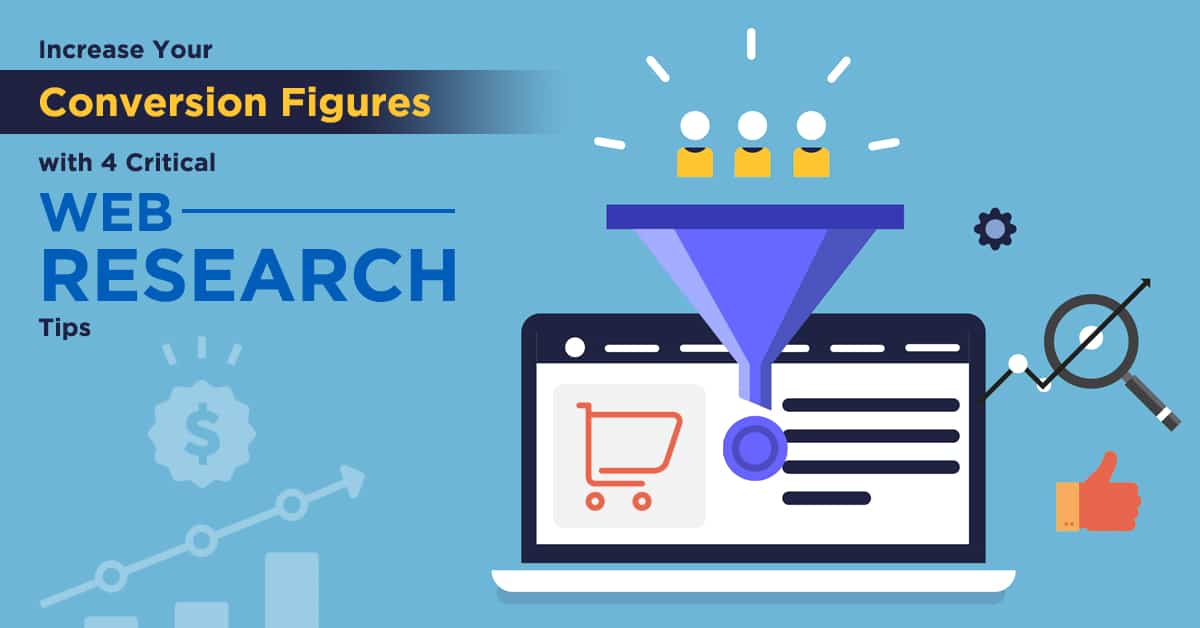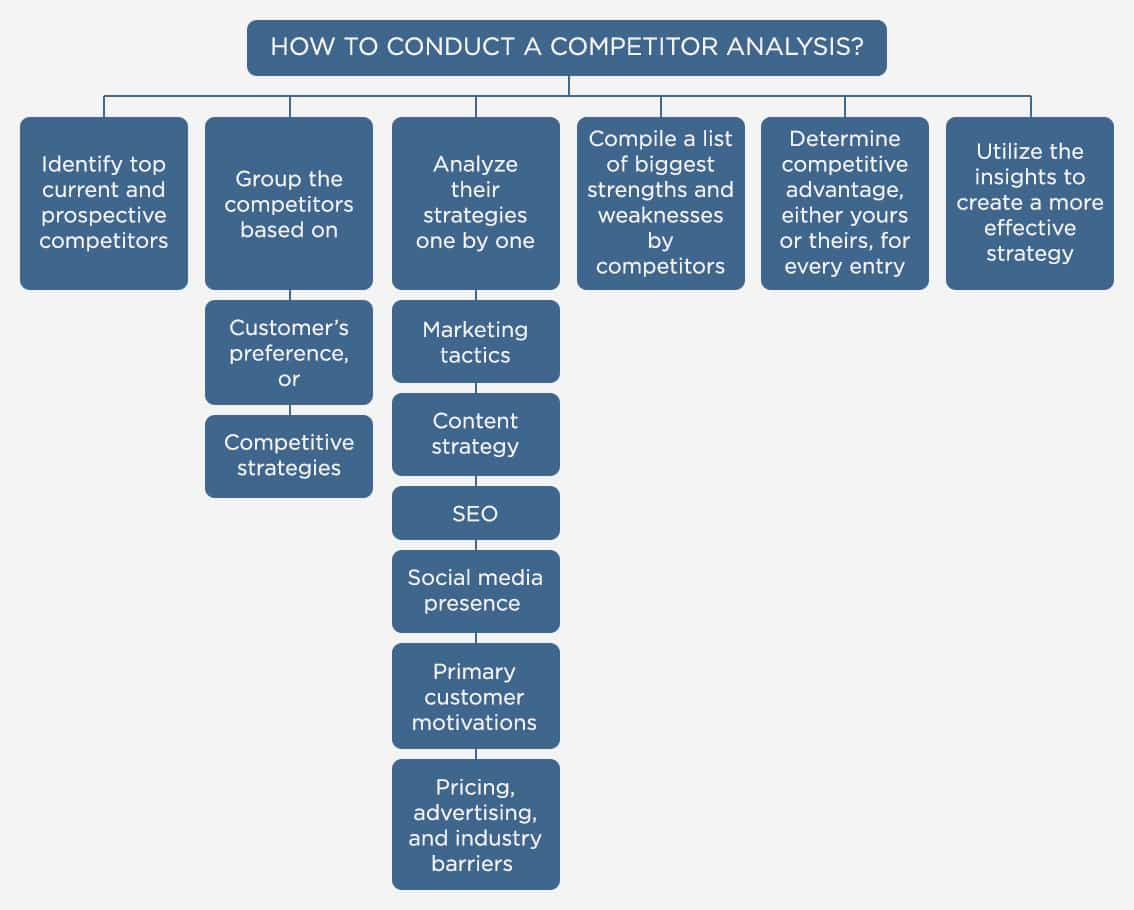
When it comes to eCommerce success, one thing matters the most- How well-informed are you?
Retail eCommerce is growing worldwide. In 2019, nearly 2 billion of the global population shopped online. That consumer base is scattered across different nations, geographies, cultures, languages, backgrounds, lifestyles, incomes, etc. Reasonably, their needs, demands, and expectations also vary.
For an online retailer, that brings a perplexing dilemma to the fore.
Making assumptions, shooting generalized campaigns blindly- none of those ideas work anymore. The audience band is too broad; their requirements too specific. So, how can you grow your eCommerce business without wasting time or money while targeting the right customers?
Well, while you do not need to cater to the 2 billion shoppers out there, you do need to identify your target audience and understand what they want. That’s where web research services come in handy.
The Advantages of Web Research in eCommerce
Inadequate market research can destroy businesses. Gaining success in online retail is a matter of selling a viable & practical product to a target audience in need of it. You have to find a problem, create a solution, and market it at the right place and time.
Web research aids you on that journey. It provides information about-
- Your target consumer’s opinion and needs
- Their motivation to make a purchase
- Insights about your top competitors
- Ways to sell more effectively to the target market
- Critical pricing techniques that work in the market
- The potential of a product for a new region, audience, market, etc.
Remember that when people pay money to anyone, they expect a reasonable worth in return. There is no shortage of market research horror stories in the industry, where a few misdirected insights/assumptions led to colossal losses.
| Web Research Mistakes That Burned Millions of Dollars | |
|---|---|
| Microsoft ZUNE 2006 Loss of $289 Million |
Designed by Microsoft as a competition to the iPod, Zune lived for less than 5 years. Lack of innovation, poor timing, and insufficient marketing became its doom |
| Amazon FIRE PHONE 2014 Loss of $170 million |
Amazon’s Fire Phone took a deep plunge within 2 days of launch. It had nothing new to offer and failed to gauge buyer motivation behind smartphone purchases. |
| Coca Cola C2 2004 Loss of $50 Million |
Coca Cola’s low-carb, mid-calorie beverage, despite being backed by market data, flunked on many fronts. That’s because it failed to ask the right questions to the right audience segment. |
| HSBC Bank 2009 Loss of $10 Million |
HSBC Bank directly translated its slogan “Assume Nothing” into other languages for marketing purposes. Careless translation resulted in the meaning of “Do nothing” in several languages. The global rebranding cost was a severe loss. |
The lesson here is simple. Not only do you need a well-organized web research strategy, but you must also execute it appropriately. A lot hinges on how well you understand the market, buyers, and competitors in the right context. Such critical significance is what motivates many online retailers to outsource web research services.
4 Web Research Tips for eCommerce Growth
1. Keyword Research

Using keywords to rank your product on the first page of a search engine is perhaps the single most effective SEO technique to date. It, however, depends on finding valuable keywords relevant to your context and using them wisely.
Usually, the first step is to find a niche where you want to rank. In eCommerce, that usually refers to the product/trade you’re into.
Most good web research services start by looking for the keywords ranking in the industry, plus the ones your competitors are using. The next step is to shortlist the accumulated phrases on different parameters to craft a list of the most appropriate key phrases. Asking the following questions will help trim the list.
- How close are those keywords to your target domain
- What is their search volume
- How many competitors are using the same phrases and how aggressively
- What are the keyword’s current ranking and intent
Ideally, a keyword with high volume is valuable for inviting traffic but also challenging to rank for. At the same time, you should also keep an eye on high intent phrases. A buyer is more likely to follow those terms(cheapest, flash deal, etc.) and make a transaction. Also, pay attention to the number of keywords. Use them throughout the product listing with care to avoid stuffing. Use synonyms and keyword variation as well.
Google Analytics and Google Search Console are the most common tools used for this purpose. Other online and offline SEO tools can also help you look for the right keywords.
However, keep in mind that this aspect of search engine optimization requires a prior understanding of the entire process. The process is long, and any mistakes would later reflect in your eStore’s online visibility & performance. So, it’s much better to outsource web research services.
2. Latest Trends

Ever worked with Google Trends?
It’s a pretty handy tool that lets you explore what the world is looking for on the internet every day. Especially in eCommerce, it tells you about seasonal trends, popular products, and the rise or fall of customer interest in different categories.
Studying the latest & historical industry trends can help online retailers in many ways.
- Distinguish fads from products with true potential
- Discover market insights that can be capitalized
- Assess product ideas based on their propensity to sell over an extended period
- Find related topics for any niche product category
- Find high ranking keywords
- Study seasonal peaks and dips in sales and competitor’s business
- Look for high-ranking, fresh content ideas to be used in marketing campaigns
- Find ranking topics by region to target specific audience
From locating a rapidly growing domain to the right keywords, Google Trends helps online retailers plan and define their strategy. That’s why it is a tool that the best web research services swear by.
Additionally, you can use other tools to stay up-to-date on the industry and use that information to fuel your decisions. For instance, utilize hashtags, look at trending posts on social media, etc.
3. Social Media Analysis

Online retailers need to find out where their product/brand is being talked about. Once you identify those touchpoints, you can capitalize on that opportunity by targeting consumers through personalized, contextually relevant ads.
That’s where social media analysis plays a crucial role.
- Use hashtags to locate the trending topics
- Search #Your-Brand-Name to see where you stand and how visible your brand is
- Look at what the top influencers in your industry are sharing
- Study the posts in your niche that do well
- Observe the trending images related to your product
- Observe the language your target consumers use
You can use similar photos, post styles, etc. on your social media to drive engagement. It’s also a good idea to leverage the user’s language in your descriptions, product title, listings, etc.
Also, analyze the interactions between prospective customers and your social handle. Use that information to gauge your reach and your audience’s sentiments.
Beware though! There is a ton of data on social media, including vanity metrics, and fluff information. If that data set isn’t studied objectively, you’ll end up harming your social media analysis efforts. For instance, you can’t identify sales and measure brand awareness using a single set of metrics.
Study about the best practices web research services use when analyzing social media performance before you do anything.
4. Competitor Research

Competitors are like a cheat sheet. There is a lot to learn from their mistakes and success. By studying their online behavior, you can discover-
- Their best-selling products
- Who is buying from them
- Changes in their pricing structure
- The effect of pricing on their sales
- How they utilize social channels
- What are customers saying about them/what does it say about their weaknesses
- How do they react to feedback
- Keyword usage and content style on their product listings and social media
Of course, the process requires some serious analysis and observation. Establish a baseline of metrics and strategies before comparing their eCommerce strategies with yours.

Market Research Is All About Understanding The User’s Perception
It’s impossible to optimize an eCommerce website without considering its most significant driving factors- the consumer & the market.
Locating target customers and understanding what they want isn’t enough. Retailers also need to get an idea of factors that bother a buyer and stop them from making a purchase. You have to motivate a customer to buy from you. That’s only possible if you-
##Understand what they’re looking for (are they the right target audience for you?)
##Offer your solution/product at the right place & time (are your marketing channels and response timing accurate?)
##Clear all roadblocks in the buyer’s journey (are you creating a seamless customer experience across all touchpoints?)
Let the Experts Help You!
Grow your eCommerce sales with exhaustive web research services from SunTec India.
With a multi-faceted team of researchers and data mining experts, we support eCommerce business across the globe with accurate & reliable data. The best industry practices accompany our fully comprehensive set of market research services.
If you’re looking for actionable insights, consistent results, and a dependable web research partner, look no more! Just drop your requirements at info@suntecindia.com.

